Popularized by the world-wide phenomenon of boba milk tea, boba pearls (also known as tapioca pearls) are steamed or boiled balls of tapioca starch, a glutinous mixture produced from the cassava plant1.
With a chewy texture and otherwise slightly sweet yet neutral flavor, boba is primarily used in desserts that require a textural addition. If not shaped into balls, tapioca starch can also act as a thickening agent in ice cream or various desserts of Asian origin.
The exact length of boba’s shelf-life depends on environmental conditions such as relative humidity and temperature, but is also affected by whether the boba has been cooked or not. Because uncooked boba pearls are practically just balls of dried dough, it is unlikely that they will spoil in any considerable length of time, so long as they have been stored properly. This is not the case for cooked boba, however, as it will only last up to four hours unpreserved2.
Can You Store Cooked Boba in the Pantry?
When tapioca pearls are cooked either through boiling or steaming, the dry balls of tapioca starch begin to absorb moisture, gelatinizing and developing their signature chewy texture. While this is pleasant from a culinary perspective, the presence of water in your boba also means that they have become habitable for certain strains of fungi and bacteria.
This means that, though dry boba is unlikely to develop colonies of microorganisms, cooked boba certainly will. Storing cooked boba in your pantry or cupboard is not advisable, as they will begin to spoil within three to four hours after cooling off from the stove.
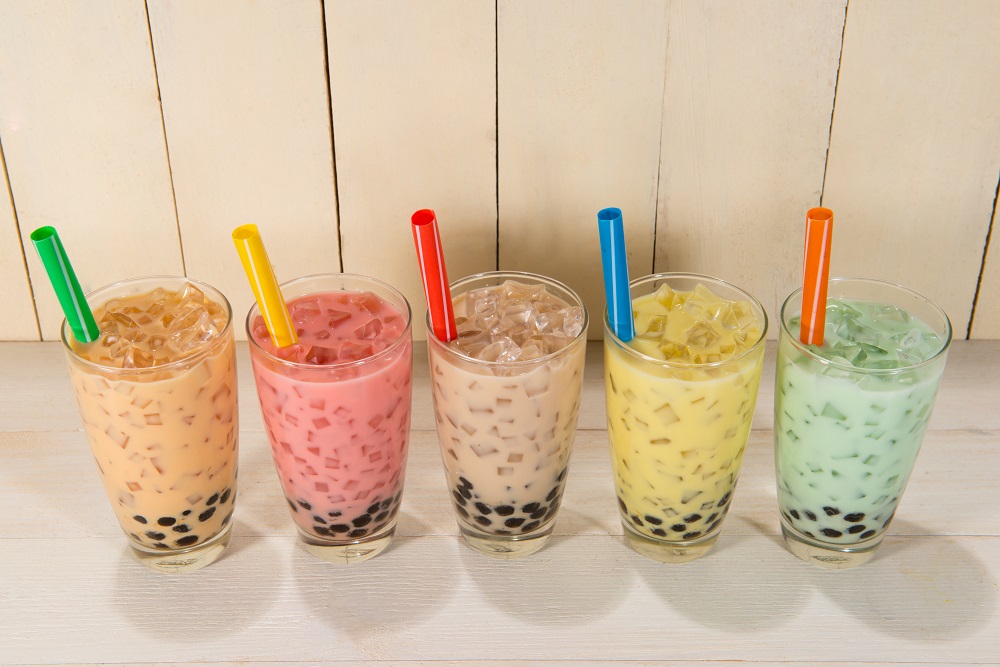
If you are unable to store the cooked boba in a refrigerator or freezer, it is best to leave them dry and uncooked or to otherwise suspend them in a fluid that will extend their shelf-life, however incrementally.
Keep in mind that if the boba has already been incorporated into a dessert or drink such as milk tea and custard, boba’s own particular shelf-life will no longer apply. Faster expiring ingredients in the dessert such as milk or eggs will begin to spoil far sooner than the boba will, essentially coopting the boba’s shelf-life.
Can You Store Homemade Uncooked Boba?
In the event that you have chosen to roll your own tapioca balls instead of purchasing them from a retailer or grocery store, it is important to keep in mind that your homemade boba will not last as long as commercially available tapioca due to the fact that they are often produced in factories that undergo constant sterilization.
However, the trade-off to this relatively shorter shelf-life is that your homemade boba will retain a far higher quality when stored properly.
In order to preserve your homemade boba, simply place them in a dry and air-tight container from any environmental conditions that may cause them to lose quality or spoil prematurely.
Ideally, keep the container of uncooked tapioca pearls in a dark and cool corner of your pantry or cupboard, far from direct sunlight or any sources of moisture, such as faucets or open windows.
How Long Does Uncooked Boba Last?
While the exact length of uncooked boba’s shelf-life depends on whether it has been home-cooked or produced in a factory, most kinds of boba pearls generally have a shelf-life of up to six months, so long as they are kept in the proper conditions.
If you have purchased your boba pearls from a grocery store or manufacturer, it is best to simply leave it in the packaging it came with, as they are likely still sterilized within said packaging and opening it will only expose the pearls to the elements.
However, if your boba is home-made, it is best to refer to the previous section of this article, as keeping the boba in wet conditions or in a storage vessel that allows free air-flow will cause it to spoil over time, developing bacterial and fungal colonies as the pearls absorb moisture.
How Long Does Boba Last in the Refrigerator?
Considering the fact that it is not only unneeded but also potentially harmful to the shelf-life of dry boba pearls, there is no need to refrigerate the uncooked form of boba. Instead, it is best to simply leave it in a dry and cool corner of your pantry.
However, if you have cooked the boba pearls and have not immediately consumed them, refrigeration is one of the only options that will allow you to prevent them from becoming colonized by fungi and bacteria.
To do so, first allow the boba to cool off until approximately room temperature, especially if it has only recently been removed from the stovetop. Doing so will prevent the boba pearls from forming steam and condensation inside the freezer, of which will both fuse the pearls together as well as cause the acceleration of their spoilage.
After sufficiently cooling them off, simply pile the boba into an air-tight container free of odors or excess moisture. Store this container in the driest section of your refrigerator for up to three days.
Remember that additive ingredients stored within the same container as the boba such as syrup, flavorings or even cream will cause this shelf-life to be lengthened or shortened, depending on the particular additive.
Should You Freeze Boba?
In the event that the three day shelf-life extension from refrigerating boba is insufficient, such as is the case in restaurants or planned events, an excellent way to surpass this is to instead preserve the boba pearls in your freezer.
Keep in mind that this only applies to tapioca that has already undergone cooking, as dry or otherwise uncooked tapioca does not require freezing and may even lose some of its textural quality if placed in sufficiently low temperatures.
In order to begin freezing your cooked boba pearls, first allow them to cool off completely if they have only recently been removed from the heat of the stove. Storing boba- or any kind of food- that is still warm will cause steam and condensation both within the storage container and in the freezer itself, forming ice crystals that will make the boba difficult to thaw as well as fuse them into a single block.
After drying, shake the boba pearls through a strainer to allow any excess water to drain out. Once drained, place the boba in an air-tight plastic pouch capable of being resealed. Push out any excess air that may be present in the bag.
In the event that you have cooked too much boba, you may require several pouches. Store the boba in such a way that the bag may be laid flat on its back, both allowing them to be stacked atop one another as well as making thawing the boba easier.
Store the resealable bags of boba pearls in the deepest part of your freezer, far from any vents or freezer fans that may cause freezer burn. It is also advisable to keep the bags of boba pearls away from anywhere they may be crushed beneath other things in your freezer.
Is it Safe to Eat Raw or Undercooked Boba?
While it is not commonly known, uncooked and unprocessed cassava root (the plant boba’s tapioca starch is made from) can be potentially harmful to humans. This is due to the presence of a compound known as cyanide, a highly toxic chemical which can lead to rapid drops in blood pressure, difficulty breathing and even death.
However, the vast majority of raw or undercooked boba pearls do not possess this particular compound, as even simple soaking or mashing can eliminate the presence of cyanide in cassava roots. The process of creating tapioca pearls essentially renders the cassava root safe to consume, though these pearls may be highly unpleasant to eat owing to their hard and dry nature3.
References
1. Editor, Julie R. Thomson Senior; Taste; Post, The Huffington (2015-07-13). “So What Exactly Is Tapioca, Anyway?”. The Huffington Post.
2. Stockton, Cassidy (2015-06-17). “What Is It? Wednesday: Tapioca Flour/Starch”. Bob’s Red Mill.
3. Danielle Dresden. (March 2021) “What to know about cassava: Nutrition and toxicity” MedicalNewsToday Newsletter.

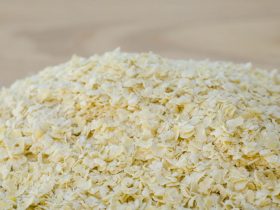
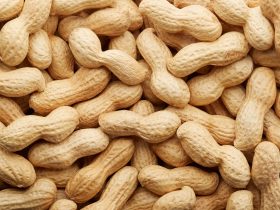
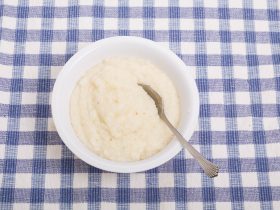
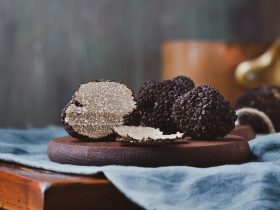
Hi, I'm Dom
Dom Eats was started to help other people fall in love with food. While cooking can feel intimidating, it doesn't have to be.